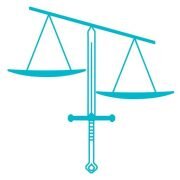Best Wrongful Termination Lawyers in Lille
Share your needs with us, get contacted by law firms.
Free. Takes 2 min.
List of the best lawyers in Lille, France
About Wrongful Termination Law in Lille, France
Wrongful termination, known in France as "licenciement abusif," refers to cases where an employee is dismissed by their employer without just cause or in violation of their employment contract. In Lille, France, like the rest of the country, labor laws are designed to protect employees from unfair dismissals. These laws require that terminations be carried out with a valid reason and following a formally recognized procedure. Employees who believe they have been wrongfully terminated can seek legal recourse through the labor courts.
Why You May Need a Lawyer
Legal intervention may be necessary in several scenarios related to wrongful termination in Lille:
- If you are terminated without a clear, legally permissible reason.
- If your termination contradicts the contractual terms of your employment agreement.
- If you are not provided with the appropriate notice or severance as mandated by law.
- If you face discrimination in the workplace that leads to your dismissal.
- If the proper procedures, like consultation with employee representatives, were bypassed.
- If your termination relates to retaliation for exercising legal labor rights.
Engaging a lawyer can help ensure that your case is handled properly and improve your chances of obtaining a favorable outcome, whether through court proceedings or settlement.
Local Laws Overview
Lille, being part of France, adheres to national labor laws, which are governed by the Code du Travail (Labor Code). Key aspects relevant to wrongful termination include:
- Just Cause Requirement: Employers must demonstrate a legitimate reason for termination, such as economic necessity or personal fault.
- Procedure Compliance: Employers must follow a strict procedural framework before executing a dismissal. This includes preliminary meetings, consultation with employee representatives (if applicable), and issuance of a formal notice.
- Notice Periods: Depending on the employee's length of service, the law mandates specific notice periods that must be honored unless an employee commits a grave fault.
- Severance Pay: Entitlement to severance varies according to seniority and contractual terms but is generally applicable in cases of unjust dismissal.
- Appeals Process: Wrongfully terminated employees can appeal to the Conseil de Prud'hommes, the labor dispute court, for remedy and potential compensation.
Frequently Asked Questions
What constitutes wrongful termination in France?
Wrongful termination occurs when an employee is dismissed without lawful reason or through an improper process. This can include violations of contractual terms or dismissals that contravene anti-discrimination laws.
How long do I have to file a claim for wrongful termination?
In France, the statute of limitations for filing a wrongful termination claim is generally two years from the date of termination.
What is the role of the Conseil de Prud'hommes?
The Conseil de Prud'hommes is the labor tribunal that handles disputes between employers and employees, including wrongful termination cases. It mediates, judges, and enforces labor laws.
Am I entitled to severance if wrongfully terminated?
Yes, if you are wrongfully terminated, you are typically entitled to severance pay, calculated based on the length of your employment and other contract terms.
Can I claim unemployment benefits after wrongful termination?
Yes, if you are terminated, you can generally apply for unemployment benefits provided you meet the eligibility requirements of the French social security system.
What evidence do I need to prove wrongful termination?
Evidence such as a written dismissal notice, employment contract, employment records, witness statements, and any correspondence with the employer will support your claim.
Can I be dismissed without any notice?
Dismissals without notice can occur in cases of gross misconduct. However, the employer must have clear evidence of such behavior.
Is it possible to settle a wrongful termination out of court?
Yes, many wrongful termination disputes are resolved through settlement negotiations, often with the assistance of legal counsel.
What should I do if I suspect discrimination contributed to my termination?
Consult a lawyer to explore your options for an appeal or additional claims under anti-discrimination laws.
Are fixed-term contract terminations handled differently?
Yes, fixed-term contracts can only be terminated for mutual agreement, fault, or force majeure. Unjust termination of such contracts entitles the employee to damages or the full salary until the end of the contract period.
Additional Resources
Those seeking further assistance or information can contact:
- Maison de la Justice et du Droit de Lille: Provides free legal advice and can guide individuals on their rights and steps to take in wrongful termination cases.
- Direccte Hauts-de-France: The regional Directorate for Enterprise, Competition, Consumption, Labor, and Employment can provide resources related to labor rights.
- Association for Workers: Local associations and unions offer support and can help navigate the process of filing a claim or negotiating a settlement.
Next Steps
If you believe you have been wrongfully terminated, consider taking the following steps:
- Document everything related to your termination, including communication with your employer.
- Seek immediate legal advice from an employment lawyer specializing in wrongful termination to understand your rights and possible outcomes.
- Contact your local labor tribunal (Conseil de Prud'hommes) to initiate proceedings if necessary.
- Explore the possibility of an out-of-court settlement, with the aid of legal counsel, to expedite resolution.
Taking timely action is critical to protect your rights and ensure you receive any compensation or benefits you are entitled to under the law.
Lawzana helps you find the best lawyers and law firms in Lille through a curated and pre-screened list of qualified legal professionals. Our platform offers rankings and detailed profiles of attorneys and law firms, allowing you to compare based on practice areas, including Wrongful Termination, experience, and client feedback.
Each profile includes a description of the firm's areas of practice, client reviews, team members and partners, year of establishment, spoken languages, office locations, contact information, social media presence, and any published articles or resources. Most firms on our platform speak English and are experienced in both local and international legal matters.
Get a quote from top-rated law firms in Lille, France — quickly, securely, and without unnecessary hassle.
Disclaimer:
The information provided on this page is for general informational purposes only and does not constitute legal advice. While we strive to ensure the accuracy and relevance of the content, legal information may change over time, and interpretations of the law can vary. You should always consult with a qualified legal professional for advice specific to your situation.
We disclaim all liability for actions taken or not taken based on the content of this page. If you believe any information is incorrect or outdated, please contact us, and we will review and update it where appropriate.











